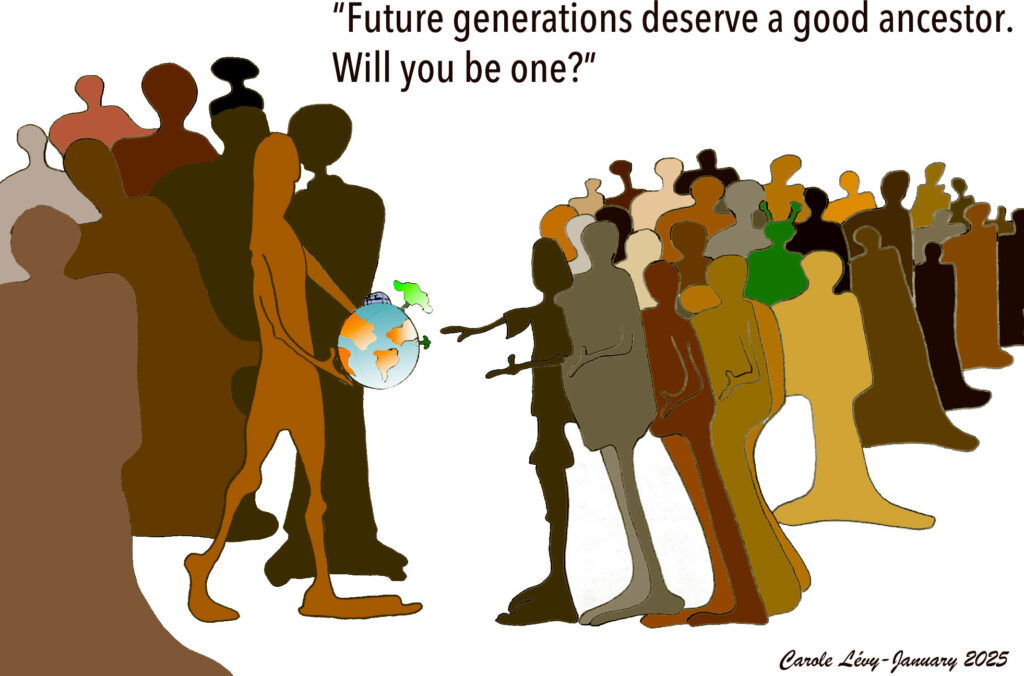— Roman Krzanic

The profound question featured above in Roman Krznari’s title challenges us to consider our role as future ancestors to those yet unborn. The concept pushes us beyond caring for just the people we know in our lifetime and asks us to expand our moral compass to include those who don’t yet exist.
It gives new meaning and personal urgency to the key notion of “leaving the world a better place.”
Furthermore, it creates opposition to the French expression ‘After me, the flood’ – a nihilistic attitude of indifference to whatever happens after we are gone.
The question awakens our connection to our ancestors – what we cherish from their legacy and what we choose to leave behind. (For example, we can honor Notre Dame’s Great Work and relinquish Patriarchal Ideology.) It challenges our understanding of Time, Ethics, Tribal Belonging and Meaning, compelling us to take a stand: will I be invested in the future of next generations?
It’s a captivating premise, perhaps because it stirs something deeper within us: the desire to create rather than languish, to nurture rather than merely consume, to regenerate rather than accumulate.
Of course, I encourage you to read Krzanic’s article and its three compelling reasons why we should prioritize future generations’ interests far more than we do now. But I also propose, as you contemplate your goals for 2025 and as an experiment for the new year, to consider filtering your intentions, choices, and actions through this simple yet powerful lens: Will this help me become a good ancestor for future generations?
In the modern world, where everything is both so connected and so ego-centric, so full of meaning and so absurd, I put this question in my toolbox, as a resource to stand tall (metaphorically), grounded and centered in who I am, ready and willing to take my place in the grand scheme of life.
With gratitude for your continued trust and connection, I wish all of you a Happy New Year 2025!
Carole







